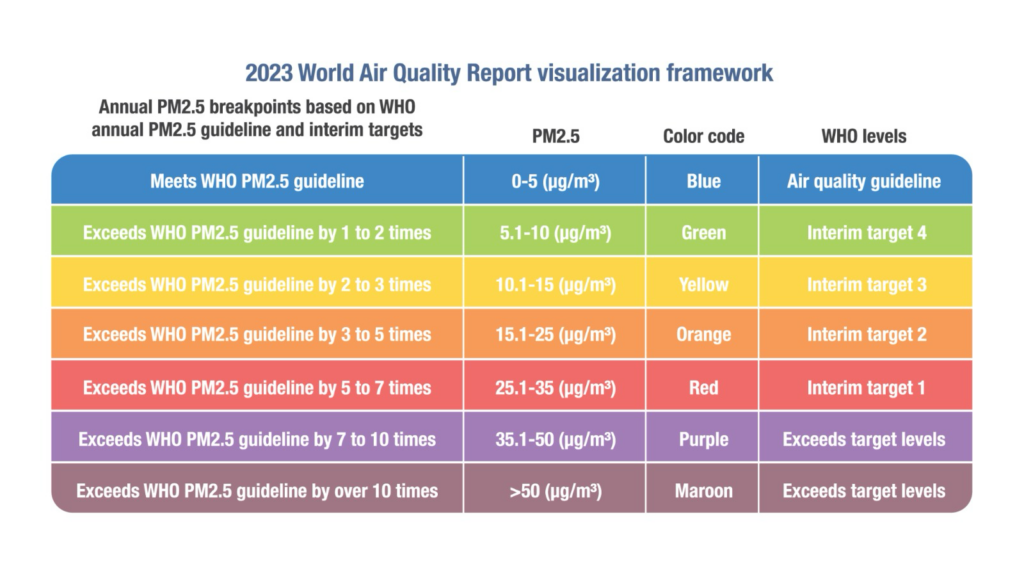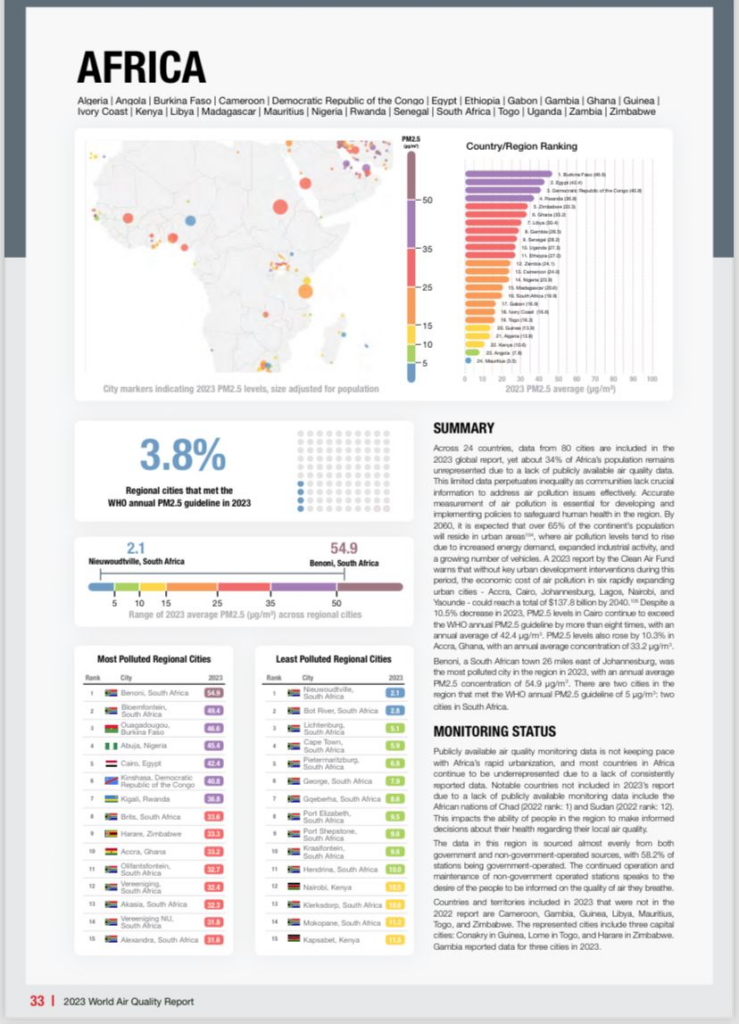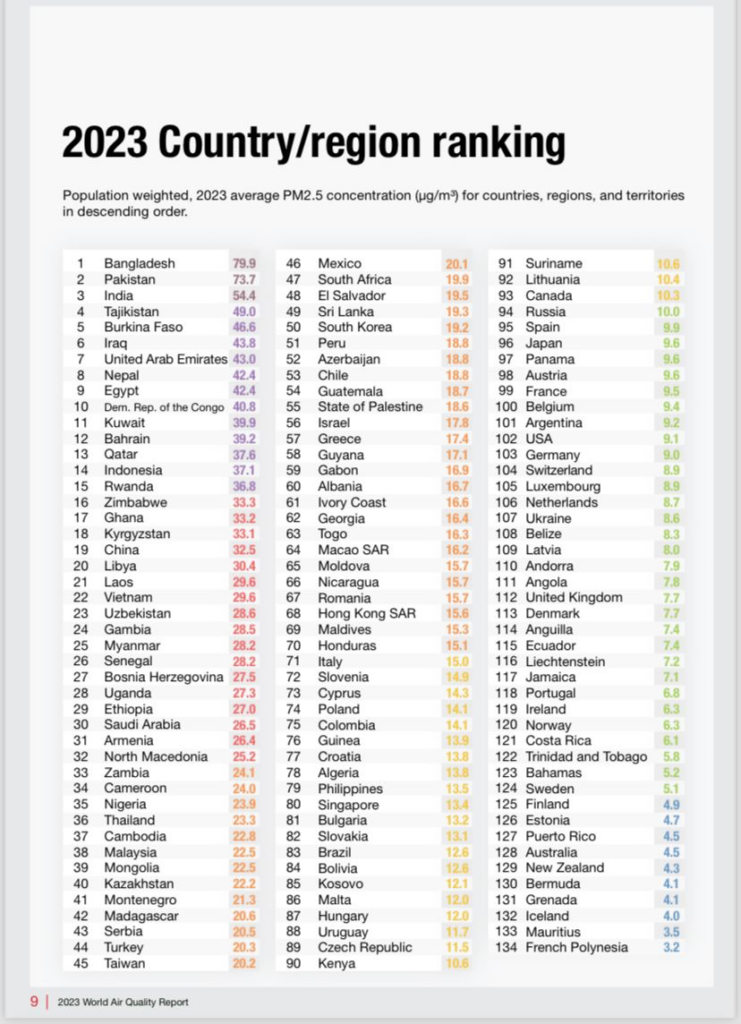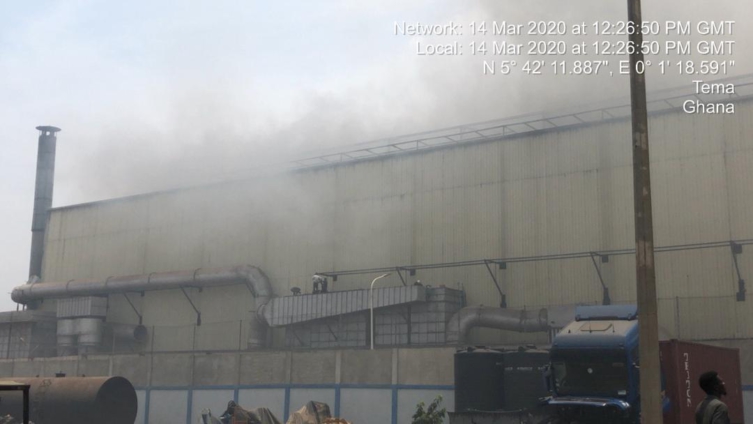The 6th Annual World Air Quality Report, meticulously compiled by IQAir, has shed light on the concerning state of global air quality in 2023.
Drawing data from over 30,000 air quality monitoring stations across 7,812 locations in 134 countries, territories, and regions, the report reveals troubling details about the world’s most polluted countries.
Key findings from the report paint a grim picture of the global air quality crisis. Shockingly, only seven countries managed to meet the World Health Organisation's annual PM2.5 guideline, signifying the widespread prevalence of air pollution.

Among the top five most polluted countries are Bangladesh, Burkina Faso, and Ghana, with PM2.5 levels soaring far beyond the WHO guidelines, posing significant health risks to their populations.
Air pollution, characterized by the contamination of the environment by various chemical, physical, or biological agents, is a pressing global concern.
Exposure to fine particulate matter, particularly PM2.5, has been linked to a range of health conditions, including stroke, heart disease, lung cancer, and respiratory illnesses.

Tragically, air pollution claims the lives of 6.7 million people prematurely every year, underscoring its devastating impact on human health.
PM2.5, the primary air quality indicator, refers to fine particulate matter measuring up to 2.5 microns in diameter.
These tiny particles can penetrate deep into the lungs and bloodstream, causing a host of health problems.
Common sources of PM2.5 include combustion engines, industrial processes, and natural events like dust storms and wildfires.
While the global air quality crisis poses significant challenges, there are glimmers of hope in the form of cities that have managed to maintain clean air standards.

In the United States, cities like Las Vegas, Nevada, stand out as shining examples of clean air, demonstrating that with concerted efforts and effective policies, it is possible to mitigate the impacts of air pollution and safeguard public health.
As the world grapples with the far-reaching consequences of air pollution, the 2023 World Air Quality Report serves as a stark reminder of the urgent need for collaborative action.
Governments, organizations, and communities must work together to address this pressing issue and ensure a healthier, cleaner future for all.
This story was a collaboration with New Narratives. Funding was provided by the Clean Air Fund. The funder had no say in the content of the story
Latest Stories
-
Ghana-Russia Centre to run Russian language courses in Ghana
37 minutes -
The Hidden Costs of Hunger: How food insecurity undermines mental and physical health in the U.S.
1 hour -
18plus4NDC marks 3rd anniversary with victory celebration in Accra
4 hours -
CREMA workshop highlights collaborative efforts to sustain Akata Lagoon
4 hours -
2024/25 Ghana League: Heart of Lions remain top with win over Basake Holy Stars
5 hours -
Black Queens: Nora Hauptle shares cryptic WAFCON preparation message amid future uncertainty
5 hours -
Re-declaration of parliamentary results affront to our democracy – Joyce Bawah
6 hours -
GPL 2024/25: Vision FC score late to deny Young Apostles third home win
6 hours -
Enhancing community initiatives for coastal resilience: Insights from Keta Lagoon Complex Ramsar Site Workshop
6 hours -
Family Health University College earns a Presidential Charter
6 hours -
GPL 2024/25: Bibiani GoldStars beat Nsoatreman to keep title race alive
6 hours -
GPL 2024/25 Bechem United keep title hopes alive with narrow win over FC Samartex
6 hours -
2024/25: Dauda Saaka scores as Asante Kotoko beat Dreams FC
6 hours -
M.anifest reflects on galamsey’s devastation 11 years after ‘No Shortcut to Heaven’
7 hours -
We’ll have the last laugh – Sammy Gyamfi slams EC’s “cantata” re-collation
7 hours

